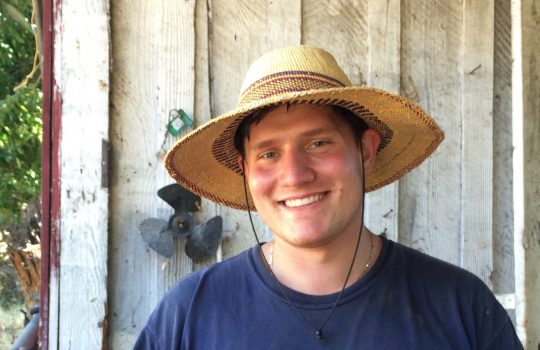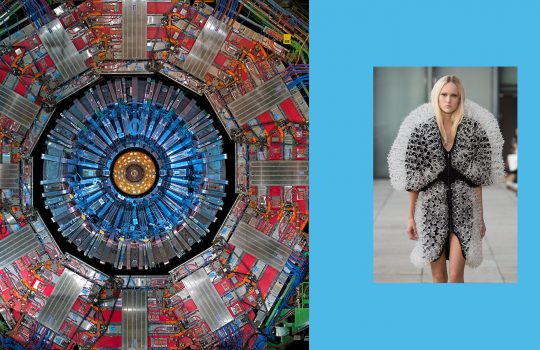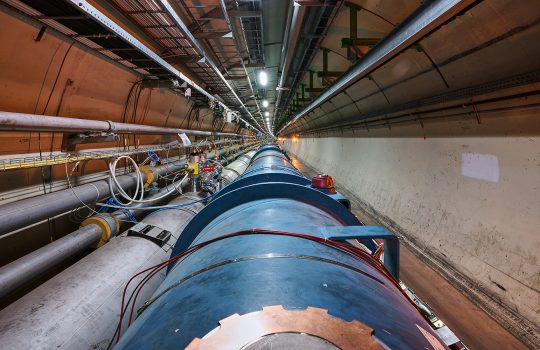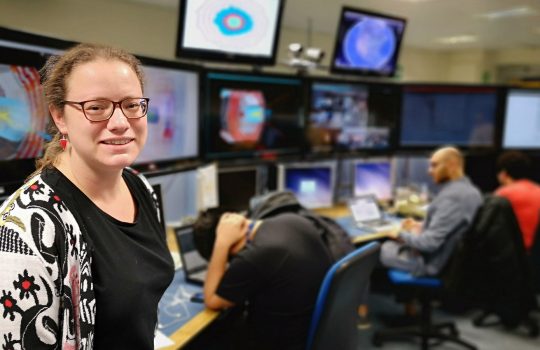The farmer physicist
If you want to visit the Pasner family farm, you’ll need a truck with four-wheel drive. You’ll need to traverse 4 miles of bumpy dirt road deep into the countryside of Penn Valley, California. But once you arrive, you’ll be greeted by fields of organic onions and garlic, nestled between rolling grassy hills speckled with oak trees. For physicist Jake Pasner, this will always be home.





